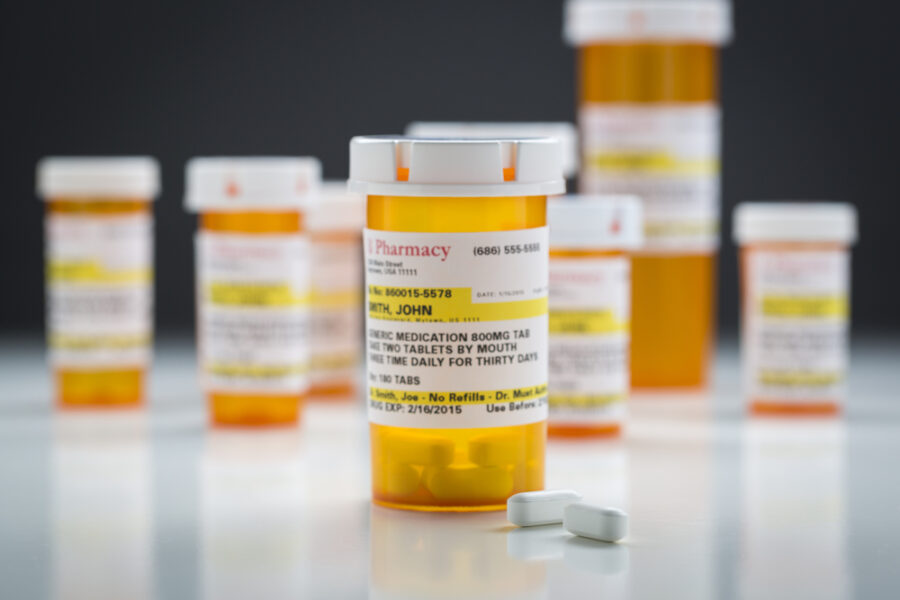Strategies for Coping with Grief in Recovery
Why Going Through the Process is an Emotional Necessity
The death of a loved one, the ending of a relationship, the loss of a job—all significant life changes can bring grief. And when you’re in recovery from a substance use disorder, it’s important to be prepared to deal with this emotion healthily. Here are eight excellent strategies for coping with grief in recovery.
Acknowledge Your Feelings
The first step to dealing with any emotion is acknowledging that you’re feeling it. Being sad, angry, scared, or any other emotion is okay after a loss. If you try to bottle up your feelings, they will only come out later in an unhealthy way.
Instead, try to name the emotions you’re feeling. This will help you to understand and process them better. Once you know what you’re feeling, you can start to deal with it constructively.
Talk to Someone Who Will Listen
Find a friend, therapist, sponsor, or any other supportive person who will just listen to you without judgment. It can be helpful to talk through your feelings and process what has happened.
This person doesn’t necessarily need to give you advice, but it can be helpful if they have gone through a similar experience. Just knowing that someone else understands can be very comforting.
Write About Your Feelings
Writing can be therapeutic. You can use a journal to write about your thoughts and feelings surrounding the loss. This can help you to organize your thoughts and work through your emotions.
You can also write letters to the person you used to be or lost. This can be a way to say everything you wish you could tell them or your former self. It can also help you to work through your feelings of anger and resentment.
Get Involved in Activities That Help
Many activities can help you cope with grief, such as:
- Attending a support group
- Writing poetry
- Music
- Painting,
- Spending time outdoors
Find what works for you and make it a regular part of your routine.
The good news is that the only requirement is to find something you genuinely enjoy. As long as an activity helps you feel better, it serves its purpose.
Don’t Make Any Major Life Changes
After a significant change, it’s common to feel like you need to make major changes in your life. However, it’s essential to resist this urge and take things one day at a time. Making significant changes can be overwhelming and may not be the best thing for you in your current state.
Instead, focus on taking small steps to improve your life. This could involve making healthy changes to your diet, exercising more, or spending more time with positive people.
Be Patient with Yourself
The grieving process can take a long time, and it’s important to be patient with yourself. It’s okay if you have good days and bad days. Just keep moving forward and know that things will eventually get better.
Take Care of Yourself
It’s essential to take care of yourself physically and emotionally when grieving. Make sure to eat healthy foods, exercise, get enough sleep, and do things that make you happy. This will help you to feel your best and be better equipped to deal with your grief.
Make Your Sobriety a Focus
Finally, remember that your sobriety should be your primary focus during this time. Don’t let your grief lead you to relapse. Lean on your support system and stay strong in your recovery.
Ohio Addiction Recovery Center
If you or someone you know is struggling with a substance use disorder, please reach out for help. At Cedar Oaks Wellness Center, we offer a variety of evidence-based treatment programs that can help you get on the path to recovery. Contact us today to learn more about our program and how we can help you heal.
Why Recovery is an Emotional Roller Coaster
The Emotional Process is a Big Part of Achieving Sobriety
It is perfectly normal to experience a range of emotions while recovering from addiction. In fact, some people actually refer to it as an emotional roller coaster. This is because there are ups and downs, twists and turns, and sometimes it can feel like you will never make it to the end. Here are a few of the most important things to remember and keep in mind about the emotional process of recovery.
Denial is Common at First
When you first realize that you have a problem with addiction, it is common to go through a period of denial. This is when you try to convince yourself that you don’t have a problem and that you can stop using whenever you want to. Denial is a defense mechanism that allows you to avoid facing the reality of your addiction.
Anger is a Natural Reaction
As you start to come to terms with your addiction, it is natural to feel angry. You may be angry at yourself for letting things get this far, at the people who have enabled you or been enabling you. It is important to remember that anger is a natural reaction, and it is okay to feel it. Just try not to let it take over your life.
Bargaining is Common
After the anger subsides, you may find yourself bargaining with yourself or with others in an attempt to avoid facing the reality of your addiction. This is when you may make promises like “I’ll only use once a week” or “I’ll only use when I’m with certain people.” Bargaining is a way to try to control your addiction, and it usually doesn’t work.
Depression is Normal
While progressing through your recovery journey, it is normal to feel depressed. This is because you are grieving the loss of your old life. You may also be feeling helpless and hopeless about your future. Depression is a normal part of the recovery process, but it is crucial to get help if it starts to take over your life.
Acceptance is the Key to Recovery
The final stage of the emotional process is acceptance. This is when you accept that you have an addiction and decide to do something about it. Acceptance is the key to recovery because it is only when you accept your addiction that you can start to make changes in your life. If you have trouble accepting your addiction, talk to a therapist or counselor who can help you.
Start Your Journey at Cedar Oaks Wellness Center
If you are ready to start your journey to recovery, Cedar Oaks Wellness Center can help. We offer various treatment options that can be customized to meet your needs. Contact us today to learn more about our program and how we can help you achieve sobriety.
Father’s Day in Recovery
How to Celebrate Dad During This Unique Time
While we would love to say that Father’s Day is always a happy time, the truth is that sometimes families go through transition periods. If your parent, spouse, or partner is in recovery, adapting your plans to celebrate might be necessary. Here are a few ideas for celebrating this occasion when Dad is in recovery.
Celebrating with Children
If you have young children, you may want to consider celebrating Father’s Day with a special breakfast or brunch. Make sure to include some of dad’s favorite foods! Spend time outdoors together playing games, flying kites, or going for a nature walk. If your children are older, they may want to help plan a special activity or outing for the day.
Children whose fathers are currently undergoing inpatient treatment can celebrate, too. Consider sending cards or handmade gifts and a special snack or treat. You may also find out if visitations are possible or if there is a special day or event that the treatment facility is hosting.
Recovery-Oriented Gifts
If you are looking for a gift that will support your dad’s recovery, consider one of the following:
- Subscription to a sober podcast or online recovery meeting
- Sobriety or recovery books, posters, or inspirational items
- A new gym membership or fitness equipment
- Favorite snacks or goodies
- Motivational books on CDs or MP3s
- Personalized mug or water bottle
- Comfortable recovery clothing
- Gift certificate to a relaxation massage or spa day
Support and Discussion
Adult children of someone with a substance use disorder might have a more challenging time celebrating Father’s Day. That’s okay! However, this does make for a good opportunity to open the lines of communication and tell them how you feel. Write a letter, send a card, or sit down and have a meaningful discussion about what’s going on in your family.
Ohio Addiction Treatment Center
Whatever you choose to do to celebrate Father’s Day this year, make it a special occasion that will support your dad in his recovery journey and strengthen your connection with him. With the right tools and support, you can continue to thrive as a family, even during difficult times. For more information on how to support your loved ones in addiction recovery, contact Cedar Oaks Wellness Center today.
Causes and Risk Factors for Alcoholism
What Plays a Role in Substance Use Disorders
Millions of people worldwide struggle with alcoholism each year. This serious substance use disorder can have a devastating impact on an individual’s life, health, and relationships.
While much is still unknown about what causes alcohol use disorders, several factors are known to play a role, including cultural differences, familial beliefs, genetic conditions, and co-occurrences of mental illness. Keep reading as we explore these different categories and why they contribute to your risk.
Cultural Differences
Cultural differences are one of the many factors that can play a role in developing an alcohol use disorder. In some social circles, heavy drinking is considered normal and even encouraged. This can make it difficult for people with an alcohol use disorder to get help, as they may feel like they’re just following the cultural norms.
Some attitudes towards drinking come from other social factors like education level, career path, and the attitudes of those you spend the most time around. For example, people struggling with alcoholism may be more likely to seek help if they have a higher education level or a job that requires them to be sober.
Familial Beliefs
Familial beliefs can also play a role in developing an alcohol use disorder. If someone comes from a family that believes alcoholism is normal or acceptable, they may be more likely to develop an alcohol use disorder themselves.
For example, if your parent or grandparent spent a lot of time drinking when you were a child, you have a higher risk of developing an alcohol use disorder in adulthood. This is because you may have had exposure to alcohol at an early age or witnessed firsthand the effects of alcoholism on your family but found ways to see it as normal behavior.
Genetic Conditions
Several genetic conditions have been linked to an increased risk of developing an alcohol use disorder. These conditions can make someone more likely to consume substances in a manner deemed unhealthy or excessive.
For example, people with a family history of alcoholism are more likely to develop the disorder themselves. Additionally, people with certain genetic conditions, such as those affecting how the body metabolizes alcohol, are also at a greater risk.
Co-Occurrences of Mental Illness
People with mental illness are also at a higher risk of developing an alcohol use disorder. This is often because these individuals tend to self-medicate with alcohol to cope with their symptoms.
The most common co-occurring mental health disorders of alcoholism include depression, anxiety, and post-traumatic stress disorder. If you suffer from any of these conditions, it’s essential to seek help from a mental health professional to address your symptoms and reduce your risk.
Combination Factors
While having an alcoholic parent or working in a bar won’t necessarily cause you to develop a substance use disorder, it is important to realize that addiction is the sum of many things together. Most who experience difficulty with sobriety cite a combination of factors from the list above as their primary reasoning for their struggle.
Cincinnati Addiction Treatment Center
If you or someone you love is struggling with an alcohol use disorder, don’t hesitate to reach out for help. There are many resources available that can help you on your journey to recovery.
Remember, you are not alone, and our team at Cedar Oaks Wellness Center is here to assist you on your recovery journey. You can overcome this disorder and live a happy, healthy life with the right treatment and support.
For more information, please use our online contact form or call (513) 780-5201
Warning Signs of Alcoholism
How to Tell When Someone is Struggling With Alcohol Use
It can be challenging to tell if someone has a problem with alcohol. Many people try to hide their drinking habits, and denial is common among those struggling with alcoholism. However, some warning signs can indicate that someone is using alcohol in a way that’s detrimental to their health and wellbeing. This blog post will discuss the symptoms of alcoholism and how you can get help if you or a loved one is struggling with this disease.
Symptoms of Alcoholism
On the surface, determining whether you or a loved one has an alcohol use disorder (AUD) is tough. What appears to be someone acting like the life of the party could be a much more significant issue. Common symptoms of alcoholism include:
Choosing Alcohol Over Other Responsibilities
If you find that you’re choosing to drink alcohol instead of going to work or taking care of your family, it’s a sign that your drinking habits are out of control.
Extreme Mood Swings
Alcohol can cause people to feel happy and excited, but it can also lead to feelings of sadness and anger. If you find that your mood swings are extreme and unpredictable, it could be a sign that you’re drinking too much.
Memory Loss
One of the most common symptoms of alcoholism is blacking out or forgetting what happened while you were drinking. If you frequently forget what you did while under the influence of alcohol, it’s a sign that your consumption is problematic.
Loss of Interest in Activities
Alcoholism can cause people to lose interest in activities they used to enjoy. If you no longer enjoy things that you once loved, it could be due to your drinking habits.
When Is Social Drinking Too Much?
Most people enjoy drinking alcohol in social situations. Whether it’s a glass of wine with dinner or a few beers while watching the game, moderate alcohol consumption can be part of a healthy lifestyle. However, alcohol consumption can quickly spiral out of control for some people.
Knowing the difference between social drinking and addiction is crucial. If you start to exhibit any of the symptoms mentioned above, it might be time to seek professional advice and support.
How to Get Help for Alcoholism
If you or someone you know is struggling with alcoholism, it’s crucial to get help as soon as possible. Many resources are available to those struggling with alcohol abuse, and treatment can be very effective.
At Cedar Oaks Wellness Center, we help individuals and families through the recovery process. Please contact us at (513) 780-5201 today to learn about our programs and treatment options.
Physical Effects of Alcohol on Your Body
Understanding the Short-Term and Long-Term Effects
The most recent findings from the National Survey of Drug Use and Health reported that over 85 percent of adults have admitted to consuming alcohol at least once in their lifetime. While drinking one alcoholic beverage may not pose significant health risks, excessive amounts and severe misuse of the substance can lead to incredibly damaging effects.
Short-Term Effects
While the immediate effects of alcohol are what often cause people to begin drinking in the first place, the longer one drinks alcohol, the worse the consequences become. Short-term effects of drinking alcohol include:
- Feeling relaxed.
- An overall sense of euphoria.
- Mood changes, from negative to positive.
- Slurred speech.
- Nausea.
- Vomiting and diarrhea.
- Blurred vision.
- Lack of coordination.
- Loss of consciousness.
- Poor decision-making.
While these effects may be temporary, some of them, like blurred vision and poor decision-making, can result in potentially life-threatening situations.
Long-Term Effects
Alcohol Use Disorder (AUD), or alcohol addiction, affects about 14.5 million people in the United States. With long-term excessive consumption, an individual exposes themselves to many harmful effects like:
- Cardiovascular Risk: Excessive use of alcohol can lead to increased cholesterol levels.
- Liver Disease: Your liver filters toxins like alcohol from your blood. While it can handle small amounts of alcohol, overuse can increase the risk of cirrhosis, liver cancer, and fatty liver.
- Brain Damage: Long-term alcohol use can cause severe brain issues like memory loss, behavioral changes, and even brain shrinkage.
- Pancreas Inflammation: An inflamed pancreas, pancreatitis, may occur due to alcohol addiction. Pancreatitis affects your body’s ability to digest food and absorb required nutrients, leading to malnourishment.
Further, alcohol abuse has been shown to increase the likelihood of bone fractures due to weakened bones. It can also increase the risk of various forms of cancer like breast, liver, esophageal, and colorectal cancer.
Alcohol Addiction Treatment at Cedar Oaks Wellness Center
While millions of people have consumed alcohol in their lives, alcohol itself has consumed millions of people’s lives. If you or someone you know is feeling helpless in their struggles with alcohol addiction, our team at Cedar Oaks Wellness Center offers a variety of treatment programs. Whether you require inpatient or detox treatments, our facility is here to help you start your journey toward sobriety.
Call us today at (513) 780-5201 or visit us online and learn how we can help you begin your path to recovery.
5 Reasons to Love Recovery
Benefits of Sobriety
After completing treatment for substance use, transitioning back to daily life can be extremely challenging. While treatment programs can help get you back to living a healthy and sober lifestyle, recovery is a lifelong journey that requires immense amounts of effort and time. There are numerous benefits of remaining sober, giving you several reasons to love and be grateful for your recovery process.
Here are 5 reasons to love recovery:
1. You Can Think More Clearly
Substance use plays a tremendous role in your cognitive function and brain health. You may experience memory loss, brain fog, or a slower response time. Substance use can also negatively impact your ability to make decisions and drastically affect your mood.
After undergoing treatment for substance use, you may notice that your thought process feels less clouded and that you have the ability to make better judgments. When you can think more clearly, you are ultimately able to concentrate better and be more productive in occupational and social settings.
2. You Feel Better Physically and Emotionally
Substance use causes detrimental effects to your body, both physically and emotionally. Physically, you may experience body aches, nausea, stomach pains, headaches, malnutrition, or even tooth decay.
Once you are in recovery, you will begin to notice major physical improvements. You allow your body a chance to heal and restore itself by feeding it more nutritious meals and introducing exercise into your daily routine. When people experience pain, they aren’t able to perform at their full potential. By removing substances from your body and living a life in recovery, you feel significantly better and are able to accomplish more than ever before.
3. You Can Build Stronger Relationships
Who you surround yourself with while in recovery determines the amount of support you will receive. It is essential to build positive, healthy relationships to encourage you on your journey. Having people you can rely on, and trust will help you maintain your recovery and sobriety.
When you have a clear mind and able body, identifying supportive relationships becomes easier, as does developing them. While making new friends as an adult can sometimes be challenging, attending support groups, volunteering for local organizations, or participating in a hobby or sports team provides various opportunities to meet new, like-minded people.
4. You Feel True to You
In addition to building stronger relationships with others, your recovery journey also allows you to repair the relationship you have with yourself. People often use substances to escape their emotions because they do not feel comfortable in their own skin or being their true, authentic selves. By living a sober lifestyle, you have the opportunity to learn more about yourself on a deeper level and practice self-love. Having a healthy relationship with yourself allows you to live a life that is uplifting, empowering, and positive.
5. You Develop Healthy Coping Skills
Oftentimes, people use substances as a coping mechanism to help manage their emotions. They may experience significant amounts of stress or symptoms of depression that are masked by the effects of substances. Treatment centers are designed to teach you healthier coping skills through various therapies and programs. After completing treatment, you will have the necessary tools to face hardships and conflict more effectively.
Being in recovery gives you the ability to handle difficult situations without being dependent on substances.
Start Your Healing at Cedar Oaks Wellness Center
There is no better time to start your recovery journey than right now. The compassionate and experienced team at Cedar Oaks Wellness Center is ready to walk alongside you and give you the safe and comfortable environment you need to begin your recovery. We offer a holistic approach to treatment and understand that the process is as individual as our patients.
To start your healing today, contact us online or call us at (513) 780-5201.
Can You Attend Addiction Rehab Without Losing Your Job?
For many people who want to attend alcohol addiction treatments or drug rehabilitation programs, they choose not to because they don’t think they can due to their work obligations. Working 40 hours a week or even part-time can be a huge part of your time each week, it’s true. However, there is some good news for busy people who want to treat their addictions without worrying about losing their jobs due to attendance issues: the Family and Medical Leave Act (FMLA).
In 1993, the FMLA was passed to make it easier for qualifying employees to take time off work for medical and family-related issues without fear of termination. Because it is a federal act, it applies to all 50 states, too. Under the FLMA, eligible employees can take up to 12 weeks of unpaid leave to address a serious medical concern, such as a chronic illness or mental health difficulty.
According to the FMLA’s definitions, drug or alcohol addiction is categorized as both a mental health difficulty and a chronic illness. With this said, going to rehab for a few weeks is protected by the FMLA.
Who is Covered by FMLA?
The requirements for FLMA coverage are a bit cloudy to understand. An employee can qualify based on who hired them and specific details of their employment.
You probably qualify for FMLA coverage if you meet these requirements:
- Have been employed for at least one year at the same place of employment;
- Worked at least 1,250 hours in that year of work;
- Work for an employer with 50 or more employees within a 75-mile radius; and/or,
- Work for a public entity like a school or certain government agencies.
If you work full time and have for at least a year, then you are probably covered by the FMLA unless your employer is a small business. If you aren’t sure if you are covered by FMLA protections and benefits, you can speak with your employer or an employment law attorney if you don’t feel comfortable going to your employer about it.
Why FMLA Pairs Well with Rehab
Fighting an addiction is not a process that can be done with a flip of a switch. It often can’t be done in just a few therapy sessions, either. Instead, addiction treatment is usually the most effective when the patient has plenty of time to learn about themselves, adjust to new routines, and, perhaps most importantly, rest.
The protections from the FMLA pairs well with addiction rehab treatments because most courses take anywhere between 3 to 12 weeks, depending on the severity of the patient’s addiction and the substance that caused it. With the FMLA granting you up to 12 weeks of leave time without the risk of losing your job, you should have ample time to attend a rehab program and miss no time within it. Afterward, you can still take additional treatment courses to strengthen your newfound sobriety, but these are usually simple to schedule around your work routine.
You Can’t Be Fired for an Illness
If you don’t qualify for FMLA protections due to your employment status, then you should know that you still can’t be punished by your employer for being diagnosed with an illness. It is considered discrimination in most cases if you are terminated or otherwise punished at work because you have an illness or disability, such as an addiction to drugs or alcohol. If you tell your employer that you need time off to treat your addiction and they fire you, then it might be something to take to an employment lawyer. However, your employment can be terminated if your job performance falters due to the symptoms of addiction.
Should You Get Treatment without FLMA Protections?
Yes, if you need help with an addiction to alcohol or drugs, then you should seek it as soon as possible. Ultimately, your health is more important than your job. Not getting any help with fighting an addiction can be downright dangerous when the substance in question can cause serious side effects.
Some substances like cocaine, heroin, and opiates can cause dangerous symptoms, such as:
- Heart failure
- Respiratory illness
- Seizures
- Paranoia
- Depression
- Mania
- Dramatic weight loss
- Amnesia
If you are worried about your health and you are ready to fight an addiction, then do not hesitate to look for a treatment center in your region or state that can take care of you. An experienced and reputable addiction rehab center will likely have multiple treatment methods and programs that can be customized to you specifically. In doing so, you might be able to get effective addiction treatments that work with your schedule, whether or not you can take 12 weeks off work through FMLA benefits.
For drug and alcohol addiction recovery options in Ohio that work for you, please contact Cedar Oaks Wellness Center today.
Why Self-Medicating is Dangerous
What is Self-Medication?
Self-medication includes treating an illness without the diagnosis or permission from a medical professional. It is common for people to self-medicate for headaches, colds, or allergies with over-the-counter medications. However, others try to treat more severe illnesses or mental health conditions with prescription medication that wasn’t prescribed to them.
Taking medications that weren’t prescribed to you can be extremely dangerous. Likely, they aren’t the proper dosage for your needs, or they could be expired. People also self-medicate without receiving an accurate diagnosis.
Risks of Self Medication
Numerous risks come with self-medicating, but here are some of the most common ones:
Substance Dependency
One of the most significant risks of self-medication is developing a dependence or addiction to the substance. Taking medication for an extended period may cause your body to develop a dependence – meaning your body’s ability to function is typically hindered without using the substance.
Substance Interactions
If you are already taking a prescribed substance to treat a different condition, mixing the medications could be more harmful than helpful. When doctors prescribe medication, they look at other medications you may be taking daily to ensure no unsafe interactions.
Substance Misuse
When doctors prescribe medications, they often give specific instructions on quantity and frequency. It is always important to communicate with your doctor what time of day you should take your medicine, if you should take it with food, and how many times of day it should be taken. By self-medicating, you could take an incorrect dose or take them in a harmful manner.
Seeking Medical Attention
Whether you are experiencing physical or mental illness symptoms, you should always seek attention from a medical professional. Not receiving the proper diagnosis, treatment plan, and overall care is detrimental to your health and wellness.
Walking Alongside You at Cedar Oaks Wellness Center
Self-medicating has serious physical consequences and can create medical conditions that didn’t exist before. If you recognize a change in behaviors in yourself or someone you love, this may be a sign to seek professional help.
The caring and compassionate staff at Cedar Oaks Wellness Center is available to answer your questions and help you determine the best treatment program for you. Contact us online or call us today at (513) 780-5201 to start on your path to recovery.
3 Tips to Maintaining Sobriety While Working From Home
Navigating an Unprecedented Time
Since March of 2020, everyone has been navigating the COVID-19 global pandemic. While the world fluctuates between being shut down or open completely, one result of the pandemic that has remained consistent is the number of people who began working from home. According to the U.S. Census Bureau, more than a third of U.S. households reported working from home more frequently than before the pandemic.
Working from Home: Harmful or Helpful?
Working from home has many benefits, and most importantly, it is a great way to keep people healthy and safe. However, for some, working from home has been an added source of stress and isolation, increasing negative emotions like anxiety and depression. In times of adversity, it is common for people to turn to substances to ease their emotions and cope with unprecedented circumstances. In fact, research states that there has been a significant increase in people drinking while working from home.
This leads to the question: is working from home harmful or helpful? If you struggle with substance use or are in recovery, there are ways to make working from home more manageable and less triggering.
Make Working from Home Manageable
Try these three tips to maintain sobriety while working from home:
1. Stick to a Routine
Maintaining a routine is a highly effective way to navigate your recovery journey. Having a set schedule provides predictability and stability throughout your day. Creating a plan including a morning routine and nightly rituals will help hold you accountable from the moment you wake up until you go to sleep.
2. Set Boundaries
Setting boundaries is an essential skill to have both in your personal and professional life. This skill reduces stress and prevents you from doing something you may feel uncomfortable with. Setting a boundary between work time and free time is vital to maintaining a work-life balance when working from home. This will also allow you to schedule time for self-care and inform your co-workers what hours they cannot reach you.
3. Create a Work Space
If you have the means to do so, creating a separate workspace will help you mentally divide your work from your home. When the lines get blurred, it can become difficult to live and work in the same space. Suddenly, where you once relaxed becomes crowded by a place of productivity. Physically separating the areas helps you maintain the boundaries you set.
Addiction Program for Professionals at Cedar Oaks Wellness Center
At Cedar Oaks Wellness Center, our Cincinnati-based team strives to provide drug and alcohol addiction treatment to everyone who needs it, including working professionals and executives. That is why we offer a plan that tailors to your unique needs, including your work schedule. This plan allows you to achieve professional success and sobriety without having to sacrifice what is important.
Call our team at (513) 780-5201 to learn more about how we can walk alongside you on your recovery journey.











